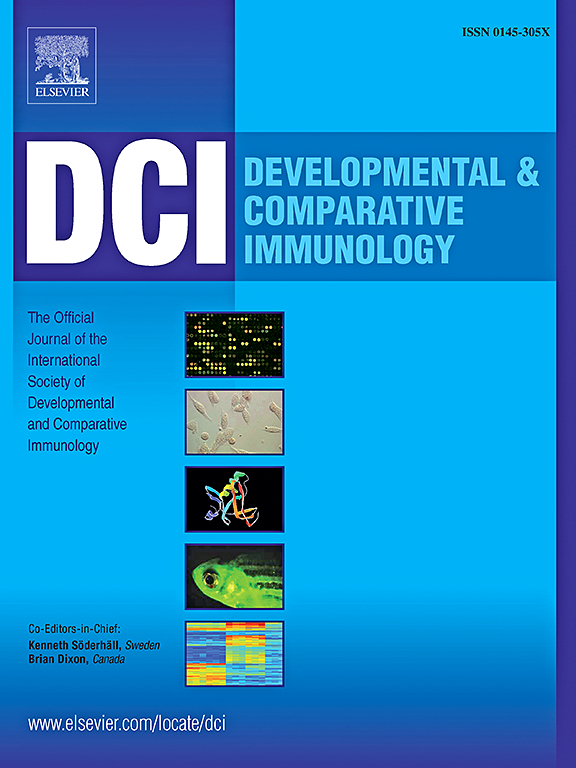The molecular toll pathway repertoire in anopheline mosquitoes
IF 2.7
3区 农林科学
Q1 FISHERIES
引用次数: 0
Abstract
Innate immunity in mosquitoes has received much attention due to its potential impact on vector competence for vector-borne disease pathogens, including malaria parasites. The nuclear factor (NF)-κB-dependent Toll pathway is a major regulator of innate immunity in insects. In mosquitoes, this pathway controls transcription of the majority of the known canonical humoral immune effectors, mediates anti-bacterial, anti-fungal and anti-viral immune responses, and contributes to malaria parasite killing. However, besides initial gene annotation of putative Toll pathway members and genetic analysis of the contribution of few key components to immunity, the molecular make-up and function of the Toll pathway in mosquitoes is largely unexplored. To facilitate functional analyses of the Toll pathway in mosquitoes, we report here manually annotated and refined gene models of Toll-like receptors and all putative components of the intracellular signal transduction cascade across 19 anopheline genomes, and in two culicine genomes. In addition, based on phylogenetic analyses, we identified differing levels of evolutionary constraint across the intracellular Toll pathway members, and identified a recent radiation of TOLL1/5 within the Anopheles gambiae complex. Together, this study provides insight into the evolution of TLRs and the putative members of the intracellular signal transduction cascade within the genus Anopheles.
疟蚊的分子收费途径汇集。
蚊子的先天免疫因其对包括疟原虫在内的病媒传播疾病病原体的潜在影响而备受关注。核因子(NF)-κB 依赖性 Toll 通路是昆虫先天免疫的主要调节器。在蚊子体内,这一途径控制着大多数已知的典型体液免疫效应因子的转录,介导抗细菌、抗真菌和抗病毒免疫反应,并有助于杀死疟原虫。然而,除了对推测的 Toll 通路成员进行初步基因注释和对少数关键成分对免疫的贡献进行遗传分析外,蚊子中 Toll 通路的分子组成和功能在很大程度上尚未得到探索。为了便于对蚊子的 Toll 通路进行功能分析,我们在此报告了经人工标注和完善的 Toll 样受体基因模型,以及细胞内信号转导级联的所有假定成分,涉及 19 个疟蚊基因组和两个高丽疟蚊基因组。此外,基于系统发育分析,我们发现了细胞内 Toll 通路成员之间不同程度的进化限制,并在冈比亚按蚊复合体中发现了 TOLL1/5 的最新辐射。总之,这项研究为TLRs和细胞内信号转导级联的推定成员在冈比亚按蚊属中的进化提供了深入的见解。
本文章由计算机程序翻译,如有差异,请以英文原文为准。
求助全文
约1分钟内获得全文
求助全文
来源期刊
CiteScore
6.20
自引率
6.90%
发文量
206
审稿时长
49 days
期刊介绍:
Developmental and Comparative Immunology (DCI) is an international journal that publishes articles describing original research in all areas of immunology, including comparative aspects of immunity and the evolution and development of the immune system. Manuscripts describing studies of immune systems in both vertebrates and invertebrates are welcome. All levels of immunological investigations are appropriate: organismal, cellular, biochemical and molecular genetics, extending to such fields as aging of the immune system, interaction between the immune and neuroendocrine system and intestinal immunity.

 求助内容:
求助内容: 应助结果提醒方式:
应助结果提醒方式:


